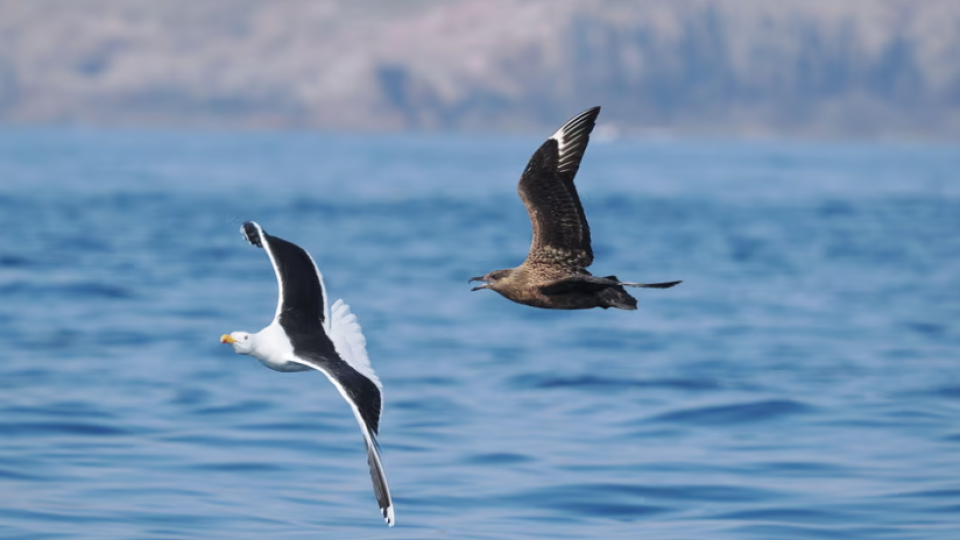The impact of H5N1 on seabird populations in the UK has been quantified for the first time, revealing devastating losses. More than three-quarters of great skuas on surveyed sites have perished since the onset of bird flu. This loss, occurring over two years since the 2021 outbreak, is particularly significant as the UK hosts the majority of the world's 16,000 pairs of nesting great skuas, making it internationally responsible for their well-being.
Jean Duggan, a policy assistant on avian influenza at the Royal Society for the Protection of Birds (RSPB), expressed concern, labeling the level of loss as catastrophic. She emphasized the global significance of this decline and its potential repercussions on seabird populations worldwide.
Moreover, the report, compiled by the RSPB, the British Trust for Ornithology, and other conservation bodies, highlights a 25% decline in the UK's northern gannets, which constitute over half of the world's population. The vulnerability of gannets, nesting in large colonies, amplifies their susceptibility to disease spread. In Wales, nesting northern gannets have plummeted by 54%.
Duggan lamented that the situation for gannets and great skuas is graver than previously thought. The report also reveals a 21% decline in the UK's population of roseate terns, the country's rarest breeding seabird, with only one regular nesting colony.
Seabirds, typically long-lived and slow to reach breeding age, coupled with low reproductive rates, face prolonged recovery periods from epidemics such as bird flu. The H5N1 outbreak, responsible for millions of wild bird deaths, including recent cases among Antarctic penguins, poses one of the most significant immediate conservation threats to multiple seabird species in the UK and continental Europe, according to the report's warning.









Leave a comment